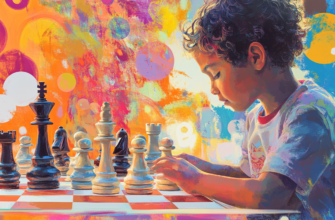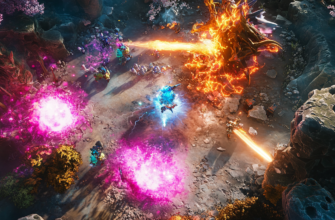- How puzzle games boost your intelligence and problem-solving skills
- What exactly is a puzzle game?
- The connection between puzzle games and IQ development
- Step-by-step guide to understanding how puzzle games help your brain
- Practical tips to get smarter while gaming
- Specific game recommendations for brain development
- Why puzzle games are good for gamers of any age
- Conclusion: It’s time to play smarter
- Call to action
How puzzle games boost your intelligence and problem-solving skills
Hey there, fellow gamers. You ever find yourself spending hours on a challenging puzzle game, just to see if you can beat it? Don’t be fooled—it’s not just entertainment. Playing puzzle games can actually do wonders for your brain. I’ve been a fan of puzzle games for years, and I’m here to tell you that it’s much more than mere fun. There’s actual scientific proof that these games can contribute to your mental development.
Let’s dive into how puzzle games enhance your intelligence, critical thinking, and overall cognitive abilities.
What exactly is a puzzle game?
First, let me give a clear definition. Puzzle games are a genre of video games that require players to solve tasks that challenge logic, critical thinking, pattern recognition, and even spatial awareness. Some famous examples include “The Witness,” “Portal,” “Tetris,” and “Sudoku.” These games typically give you obstacles that require mental effort to overcome, stimulating different areas of your brain.
The connection between puzzle games and IQ development
Now let’s talk about the fun part: the connection between puzzle games and intelligence. Research has shown that playing puzzle games can have measurable effects on a person’s IQ. Studies by neuroscientists have demonstrated that solving puzzles enhances neuroplasticity, which basically means that your brain becomes more flexible and adaptable. This flexibility improves memory, problem-solving, and decision-making abilities.
Okay, but how does that actually happen? Well, puzzle games activate different parts of your brain. As you work through increasingly complex problems, you’re challenging both the logical and creative sides of your mind. And the more you use these mental “muscles,” the stronger they get. It’s similar to going to the gym: work the brain consistently, and it’ll become fitter.
Step-by-step guide to understanding how puzzle games help your brain
If you’re wondering how playing puzzle games can actually enhance your intelligence, let me break it down:
- Improves memory: Many puzzle games force you to memorize all kinds of visual and auditory cues. For example, in games like Tetris, you’re constantly remembering patterns and positions to strategically place pieces. This repeated exercise strengthens your short-term and spatial memory.
- Boosts problem-solving skills: Every time you face a new level or challenge, you need to think through how to solve a problem—often under a time limit. This boosts critical thinking skills, as players try different approaches and strategies.
- Teaches you patience and persistence: Some puzzle games are brutally hard, requiring countless attempts to figure out. This teaches you persistence and patience—two things that are important not just in gaming, but in life as well.
- Develops spatial reasoning: Games like Tetris or “Portal” require you to imagine the arrangement of objects in unique ways, improving your ability to understand and predict spatial relationships.
- Heightens concentration: Puzzle games demand focus. If you’ve ever spent hours trying to figure out how to move blocks just the right way, you’ll understand the level of concentration necessary. This heightened concentration contributes to better mental discipline.
Practical tips to get smarter while gaming
If you’re serious about boosting your brainpower while also having fun, let me share some strategies to maximize the benefits from puzzle games:
- Choose games that challenge you: Don’t just pick puzzle games that are easy. It’s important to push yourself. Opt for games with varied difficulty settings to stimulate different parts of the brain. Games like The Witness or Portal give you scalable difficulty—a great way to keep growing.
- Play regularly but don’t overdo it: Regularity is key! You don’t need to spend hours daily (unless you’re truly a hardcore gamer), but playing a puzzle game for 15-30 minutes a few times a week will train your brain over time. Think of it as mental exercise.
- Track your progress: Some puzzle games keep stats. Use those! Tracking how quickly you solve puzzles or how efficiently you tackle challenges can show you how much smarter you’re becoming.
- Mix and match games: Don’t stick to just one game. Different genres will test different abilities. Try mixing it up with logic-based games like Sudoku, spatial games like Tetris, and narrative-driven puzzle games like Papers, Please.
- Apply what you learn in real life: Don’t forget that the cognitive skills you develop in-game—pattern recognition, logical deduction, spatial reasoning—are applicable in real-world problem-solving situations, too.
Specific game recommendations for brain development
Check out these awesome puzzle games to sharpen your wits:
- The Witness: This open-world puzzle game has hundreds of puzzles that require you to use both logical thinking and a bit of creativity. It’s a visual and mental experience that will keep your brain ticking.
- Portal & Portal 2: If you love physics-based puzzles, this is the game for you. These games challenge both your spatial reasoning and your ability to strategize.
- Tetris: A classic choice that sharpens your quick thinking and reflexes. This game is perfect for anyone looking to fine-tune their spatial reasoning.
- Human Resource Machine: It might look like a simple programming game, but it makes you think about problem-solving in a way that mirrors real-world software development.
- Sudoku: Whether you play this classic with a pencil and paper or digitally, Sudoku is the definition of logic training. Every move will stretch your mental muscles.
Why puzzle games are good for gamers of any age
Here’s the thing: it doesn’t matter how old you are. Whether you’re 15 or 50, puzzle games can help improve your brain function. As we age, our cognitive abilities naturally decline, but by regularly playing puzzle games, you can slow that process. Games like Sudoku and Crosswords are often recommended for older adults to keep their minds sharp.
And for the younger crowd, developing problem-solving skills early can give you an edge in school or work. Especially if you’re into math, science, or programming, training your brain with puzzle games can create a strong mental foundation.
Conclusion: It’s time to play smarter
So, the next time someone tells you that playing puzzle games is a waste of time, just smile and know you’re actually developing your intelligence. These games offer more than just entertainment; they challenge you to think harder, plan smarter, and solve things faster. Your brain will thank you!
Ready to level up your mental game? Pick up a puzzle game today, track your progress, and watch yourself become a more strategic thinker. Let’s take our love for gaming and use it as a tool for mental growth. Happy gaming, bro!
Call to action
If you found this article helpful and are looking for more ways to improve your gaming skills and sharpen your cognitive abilities, make sure to hit that subscribe button. Stay tuned for more tips on how to get the most out of your gaming experience!

















